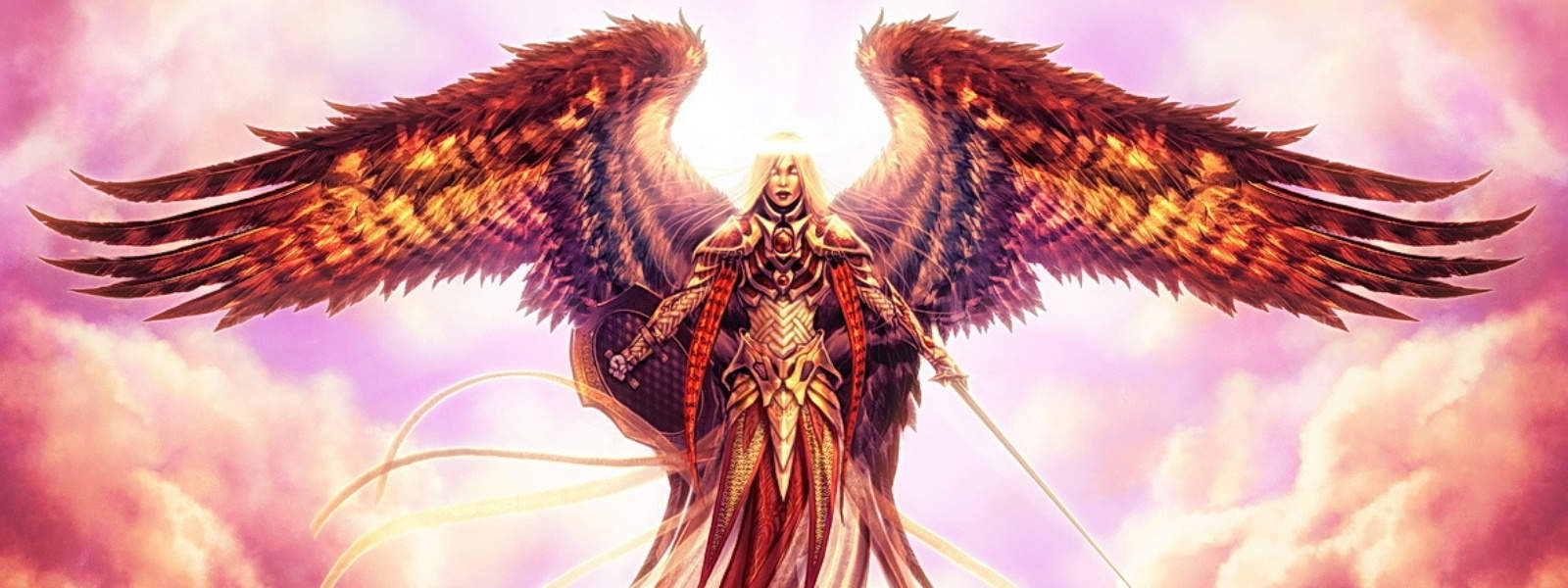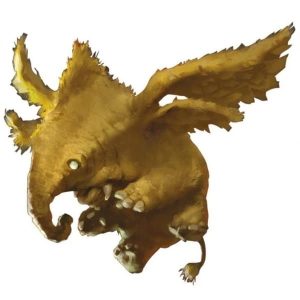Celestial 5e is an unusual monster type to emerge in D&D advertisements. Celestial seem to be permanent residents of the Outer Planes and include organisms that generally range from angels to unicorns.
Several more celestial 5e showed up in previous D&D versions, however, this guide chose to focus on the celestial 5e encountered in D&D.
The Upper Planes:
The Abandoned Zones’ cosmology relies on aircraft of creation. A significant proportion of D&D explorations occur on the physical level, but there are many more. These planes are separated into multiple classifications; for example, the elemental planes are the planes of Ignition, Earth, Water, and Wind.
The Outer Planes are a massive number of planes. These seventeen planes relate to D&D’s moral links and include planes varying from Mount Celestial Seven Heavens to Baator’s Nine Hells.
The Upper Planes are the perfectly aligned planes of the Outer Planes. The above planes are Mount Celestia’s Seven Heavens, Bytopia’s Twin Paradises, Elysium’s Blessed Farms, the Beastlands’ Countryside, Arborea’s Olympian Glades, Ysgard’s Heroic Contexts, and Arcadia’s Empires.
The vast majority of celestial 5e can be discovered on these seven planes, especially Mount Celestial.
Celestial through Challenge Rating:
Our checklist appears below, as well as a quick summary and Challenge Rating. These are beneficial to everybody seeking to comprehend the power levels of the organisms we’re trying to discuss.
Angels:
Angels are very well celestial. They are representatives of decent gods’ should. They bring out the wills of their supernatural beings in the planes with their untiring decision and total aggressiveness toward cruel creatures.
Angels’ ideals and self-righteousness expose them to the ego. They are classified into three types: Devas, planetars, and solars.
Angels get the appearance of physiologically flawless and ideal humans, with brightly shining eyes and huge, white, feathered wings.
They greatly enhance their spell casters with a wide range of spells that they’re able to cast by employing their Inherent Spell-casting skills.
Devas:
Devas are the ‘ divine’ communicators. They seem to be shape transformers who move the information plane as humanoids and wildlife, transporting messages from their supernatural beings to mortals. Devas have silver-white grey skin and blue eyes when they take on their adorable form.
Devas are the least effective angels in war. They are, even so, worthy opponents, with a task rating of ten. Transformation Shape is the determining ability of Devas between angels.
This facilitates them to convert mysteriously into any creature or human looking with a lesser challenge rating than they have.
Planetars:
Planetars are also the gods’ weapons, so devas are the gods’ communicators. They act in the world but instead of trying to carry divine messages to mortals.
Planetars are frequently found standing alongside the believers of their gods against evil forces.
They have blue-green skin and therefore they are completely bald. To hold out their gods’ desires, they could indeed modify the climate and disperse invertebrate plagues.
Solar:
Solar angels are without any doubt the most strong. They are pretty uncommon, with only 24 assumed to occur in total. Solar has a task rating of 21 and the skill to use Iconic Actions, making them exceptionally effective in the fight.
So every solar is remarkably vital to the world, as a large number of the gods within the Neglect Realms are still not serving through any solar. They use only by one or two gods who maintain their services.
They have peach skin and reddish, because of their rareness and importance, independent solar features may diverge from the norm more frequently than other organisms.
Solar is famous for its strong personality, and in situations of war, it may make the assumptions and orders of other angels.
Murdering Longbow, the Solar’s logo combat skill, allows each other to kill with a separate arrow.
Angels Who Have Fallen:
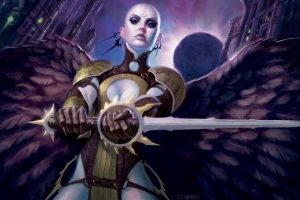
Angels’ proud nature could indeed result in them doing horrible acts. These angels have already been completely damaged and evicted from the Upper Planes. Some fallen angels end up living out their weeks on the Material plane.
Most, however, turn purely evil and partner up with the Lower Planes. Zariel, the decayed solar who controls over Avernus as an archdevil, is the most remarkable fallen angel.
Empyrean:
They are the most effective celestial 5e in D&D. They are indeed the descendants of great gods and one of three “titan” organisms in D&D.
Empyrean is splendid colossi for whom mood changes influence the weather and regional ecosystem. A large percentage of Empyreans is hectic in orientation, however, some are manipulating or haunting, either consciously or unintentionally, and then become evil.
Pegasi:
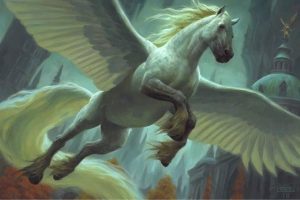
These are white horses with angelic fluffy feathers. They were also descended from the Olympian Glades of Arborea and often serve Corellon’s elven pantheon.
Pegasi are popularly shy organisms with humanoid intellectual ability. They can be urged to serve as lifetime mounts for decent creatures on the circumstance, but this can be complicated.
Unicorns:
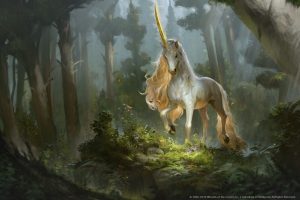
In imagination, they are situated at the crossroads of fey and celestial. Unicorns in D&D are classified as celestial, but those who exhibit many attributes that you would assume from fey life forms.
Unicorns are spiritual guardians of their fantastical lands. They carry a sense of peace to their wooded areas, and living animals tend to range from beasts to fleeting fey that may be uncommonly tame and dedicated in a unicorn’s field.
Unicorns, like pegasi, may function as mounts for great lifeforms during the event. A creature would only serve as a mount for a champion who reliably serves the will of the unicorn’s god in the deepest and most helpless of times.
Couatls:
Couatls are delightful snakes with sparkling, elongated limbs. They were created by ancient gods who have long been seen as passed away. Couatls, despite their extended lives, are not immortal and will die of old age or disorder.
They only recreate if their spiritual duties go unaccomplished. A couatl that detects its death would then choose a partner who can reproduce and then devote the rest of its days advising its offspring inside the incomplete spiritual duties.
Couatls are structures that can believe the look of any creature with a lower competition rating than themselves. They cannot directly lie, they can mislead by technical errors and simply wrong consequences.
Hollyphants:
They are small celestial wild animals. They have comparatively tiny wings above their ears that are protected in the same brown fur as the remaining portion of their bodies.
Hollyphants serve as gods and angels’ messengers. They may appear to be weak enemies in fighting, yet they will happily disorientate evil people by talking up sounds from their stems.
Previous D&D editions’ Hollyphants could convert into scary feathered mastodons, but Descent in Avernus does not mention such an ability, so 5 E’s Hollyphants are doubtful to have it.
Ki-rin:
Ki-rin is a great sign first and foremost. These delightful gold scaling structures carry organisms to give many good wishes to those who view them circling overhead. These phrases are still mostly true. A variety of good wishes are bestowed upon the land surrounding a Ki-lair. The Flora and fauna blossom there and the ills of great mortals are curing.
Ki-rin may also show up at the site of such a battle to thank decent enemy forces.
Aasimar:
Aasimar is not celestial in and itself, however, they are intrinsically linked to them. For most D&D parties, Aasimar is the nearest thing to trying to play an angel as a player character.
Depending on if they are a guardian, curse, or fallen easier, it can unlock spiritual energy from inside themselves in any of three ways.
Making use of celestial in your play:
Agents of God:
Celestial is exactly unusual on the material plane, where the majority of D&D advertisements take place. If celestials visit the resource plane. It is frequently in the form of divine helpers or agents.
A celestial may visit this same material plane to convey a message or complete an assignment before going back to the Upper Planes.
These heavenly agents may arrive throughout your players as those who travel. Clerics in specific are regularly the topics of spiritual interest, and although player actors of any class may continue to pursue by a god or strong celestial.
These celestial beings may send the players emails or tasks that promote the player’s plot in a certain way. From a D-M viewpoint, the advantage of using celestial to convey plot hooks is that D&D’s gods have an extremely broad knowledge of what is happening in the world.
It makes perfect sense that even a god would submit the party to a faraway place in which they have no contacts, to accomplish a task that resembles very little to anything that they have previously done.
At the same time, a god could indeed assign more particular tasks based on a comprehensive awareness of the player actors’ past or present.
Details:
Gods could communicate with your group through celestial in a wide range of ways. Angels may appear throughout their divinity form to your party to give simple tasks as well as information.
But even so, some gods may choose to communicate in less direct ways. A god may permit the group to see a Ki-rin as a sign, denoting that they’re on the right path.
Some gods, on the contrary hand, may start taking a much more direct approach. If a god needs the party to be at a specific location, that god might decide to send a portion of pegasi to physiologically transport the party supporters there.
Gods may also send celestial to support a party or particular party members who are most persistent in respecting and embracing the values of such a deity. A god could send a unicorn or a pegasus to serve as both a mount for their winner.
They may even send the planetar to continue fighting the defendant in an especially tricky battle against destructive spirits. Each of these could be efficient methods for you, as the D M, to benefit the religious actors in the party.
Upper Planes inhabitants:
Celestial usually visit the material plane, it’s also possible that your party will awaken celestial at residence. Campaigns infrequently occur in the Upper Planes, but you may wish your group to meet angels and pegasi within their domain.
Such as the Upper Planes in your game is a challenging task. The celestial organisms described in 5 E’s publications all have one feature in common: they’re all celestial and visit the material plane under the circumstance.
Angels, for example, are regular users of the material plane or may constitute the majority of the celestial with whom mortals socialize. This is simply because they represent divine agents.
Angels don’t represent the majority of organisms in the Upper Planes.
Questions and Answers
-
Is it true that all celestial 5e are great in D&D?
All of D&D’s celestial begin as decent creatures, and they can fall from grace and then become violent. Fallen angels are one of the powerful evil organisms in the Forgotten Realms.
-
In Dungeons & Dragons, where do celestial 5e arise from?
Celestial in D&D arises from the precisely aligned Upper Planes. Mount Celestial and Arborea are two of these planes.
-
In Dungeons & Dragons, are celestial 5e positive or negative?
The majority of D&D’s celestial is very well, and all celestial was created well. However, some celestial has fallen from grace and turned evil.
What D&D races have celestial language skills?
Only the aasimar speak celestial by default in D&D. Celestial can be managed to learn by characters of all races.
-
In D&D, are gods celestial 5e?
The gods in D&D lack a monster type. They could use avatars as their physical signs in the world, and so these avatars can be giants, celestial, or friends.
These avatars, however, aren’t the gods themselves. A god could take the form of a celestial creature, but the god isn’t a celestial creature.
Read Also: Guides
